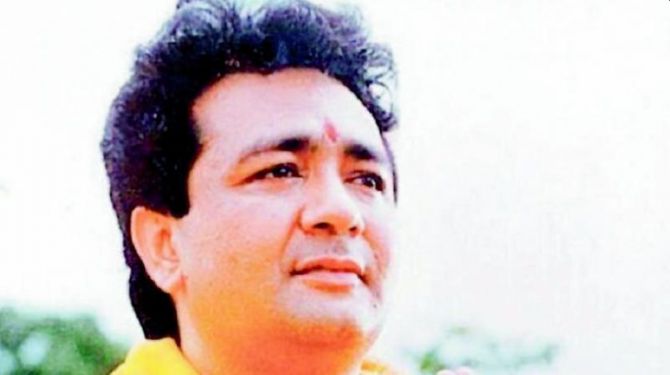Nearly 24 years after the crime that shocked the Hindi film industry, the Bombay high court on Thursday upheld the acquittal of film producer and Tips Industries co-founder Ramesh Taurani in the 1997 murder case of music baron Gulshan Kumar, but confirmed the conviction of co-accused Abdul Rauf Merchant.

A division bench of Justices S S Jadhav and N R Borkar also quashed the acquittal of Rauf's brother and another accused in the case, Abdul Rashid Merchant, and sentenced him to life imprisonment noting that Rashid was one of the persons who shot at Kumar.
Gulshan Kumar, known as 'Cassette King', was shot dead outside a temple in suburban Andheri on August 12, 1997.
The high court in its judgment noted that it was "a cold-blooded murder”.
”We have no doubt whatsoever that the prosecution has proved that the appellant (Rauf) has caused the homicidal death of deceased Gulshan Kumar by firing and causing bullet injuries beyond reasonable doubt,” the HC said.
Rauf had no personal animosity or grudge against Kumar but "committed the ghastly act as he was hired by (music composer) Nadeem Saifee and Abu Salem who wanted to satisfy their personal vendetta against the deceased,” the division bench said.
Nadeem Saifee and gangster Abu Salem were shown as absconding accused in the case and the trial against them did not proceed. Salem was later deported to India from Portugal.
Confirming the acquittal of Taurani, the bench said, ”There is no cogent and convincing evidence to establish that Ramesh Taurani had conspired with music director Nadeem Saifee or Abu Salem and hence the acquittal of Ramesh Taurani does not call for any intervention.”
The court also commended the testimony of eyewitnesses.
”It is a case of direct evidence. In the present case, we need to appreciate the conduct of the eyewitnesses who had not just claimed that they are witnesses but without showing any apathy had helped the deceased (Kumar) and the driver by taking them to the hospital, reporting the matter to the police and did not hesitate to stand true to the test of scrutiny,” the court said.
According to the prosecution, Nadeem Saifi and Taurani had paid money to Abu Salem to eliminate Kumar.
On April 29, 2002, a sessions court acquitted 18 of the 19 accused. The trial court only convicted Rauf under Indian Penal Code sections 302 (murder), 307 (attempt to murder), 120(b) (criminal conspiracy), 392 (robbery) and 397 (causing grievous hurt in robbery) and section 27 (possession of arms) of the Indian Arms Act.
Rauf subsequently appealed against his conviction, while the state government filed an appeal against the acquittal of Taurani.
The bench upheld the conviction of Rauf and also the life sentence imposed on him, but quashed and set aside his conviction under IPC sections 392 and 397.
"The acquittal of another accused Abdul Rashid Merchant is quashed. Rashid is convicted under sections 302, 120(b) of the IPC and section 27 of the Indian Arms Act. The accused is sentenced to life imprisonment. He is directed to surrender forthwith to the trial court or the D N Nagar police station," the high court said in its order.
The bench also said Abdul Rauf Merchant would not be entitled to remission (reduction of sentence) considering his "criminal antecedents". "In the interest of justice and society at large, he is not entitled to any leniency," the court said.
After the killing, Rauf had absconded and was arrested only in 2001, the high court said.
"In 2009, he (Rauf) was granted furlough, but he did not surrender and had to be arrested in 2016 again," the bench said.
If Rashid fails to surrender, the sessions court can issue a non-bailable warrant against him, the bench said.







 © 2025
© 2025